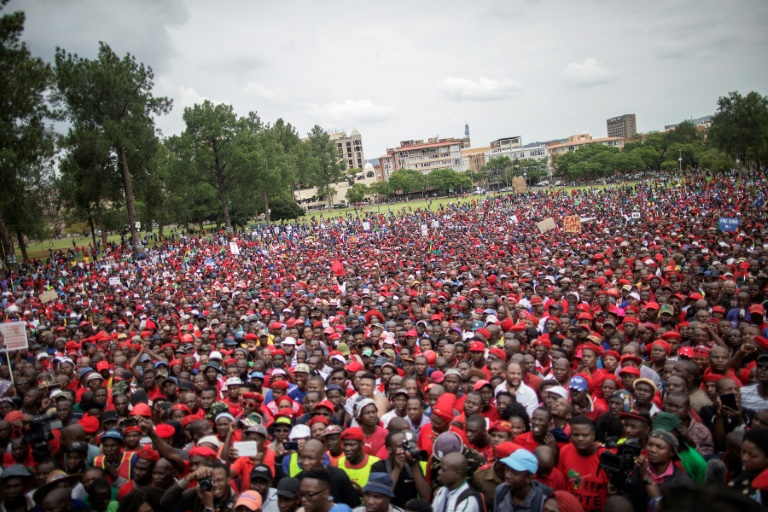The new leader of the South Africa's ANC party, Cyril Ramaphosa, will likely be the next president of the country.
He faces an immediate list of urgent issues as the party that has held power since the end of apartheid rule 23 years ago struggles to live up the optimism of that era.
– 2019 election –
The process to elect a new ANC head laid bare deep divisions that threaten to split the party ahead of the 2019 election. The popularity of the African National Congress has already fallen sharply.
Uniting the party and running a successful campaign will be priority for the new leader, though the ANC still has the advantage of a large majority in parliament.
The 54 percent of the vote that the ANC won in 2016 local elections was the worst result since it came to power in the 1994, underlining the damage suffered to its reputation under President Jacob Zuma.
The party faces threats from the centre-right Democratic Alliance and the leftist Economic Freedom Fighters parties.
Zuma will step down before the election after serving the maximum two terms.
– Unemployment –
At the heart of South Africa’s troubles is its 28 percent unemployment rate, which peaked at a 14-year high in June.

The high unemployment rate, corruption scandals and slow growth fuelled protests against Zuma
According to an expanded definition, which includes people who have given up looking for employment, the figure is 36 percent.
Even more shocking is the youth unemployment rate — 55 percent in the second half of this year.
South Africa is the continent’s most-industrialised economy, but the severe lack of jobs fuels deep anger in many poor black townships and rural areas that have seen little progress since the end of white-minority rule.
– Low growth –
The struggle to create employment is hampered by an economy that expanded by 0.3 percent in 2016, the slowest pace since a 2009 recession, as drought, low commodity prices and weak demand for exports took their toll.
This year the economy is due to grow 0.7 percent, down from the 1.3 percent predicted in the February budget.
The World Bank predicts 1.1 percent growth in 2019 — below the country’s population growth rate and therefore increasing poverty per capita.
Low growth has also increased the budget deficit and seen the rand slide, while the nation’s debt was this year downgraded to junk status by the S&P and Fitch ratings agencies.
– Corruption culture –
Allegations of corruption have piled up against President Jacob Zuma and his associates, particularly the Gupta family who are accused of buying influence and even being able to name cabinet ministers.
Tackling the widespread culture of kickbacks and bribes will be a challenge for the new leader as the patronage networks are embedded deep in South Africa politics and business.
One key test could be the potential prosecution of Zuma on graft charges over 783 payments he received linked to arms deals before becoming president.
A judge this month ordered Ramaphosa to appoint a new chief state prosecutor as Zuma had a conflict of interest due to the graft charges.
A separate court recently also ruled that an inquiry into allegations against Zuma and the Guptas must be set up within 180 days — meaning the scandal is set to roll into the coming years.





